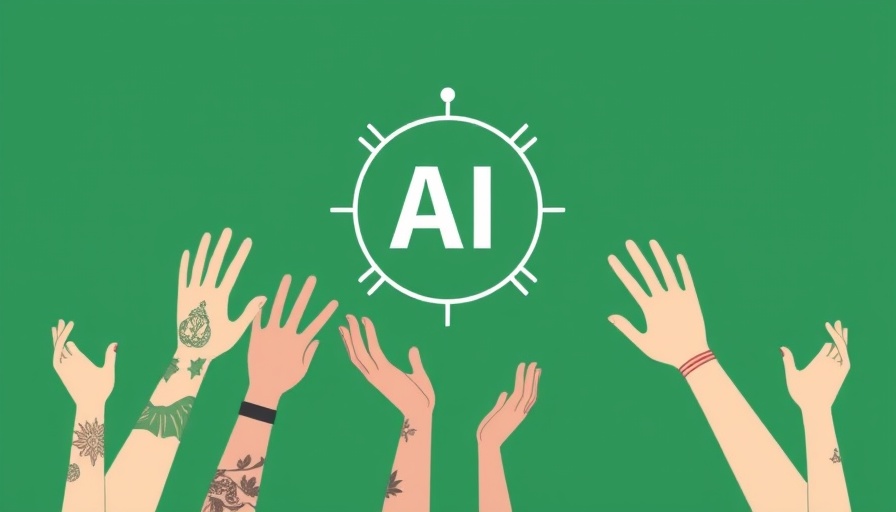
Understanding the AI Revolution in Marketing
The advent of artificial intelligence (AI) has transformed numerous sectors, yet the marketing industry, particularly in manufacturing, is on the cusp of a critical evolution. For professionals and business owners, the call to embrace AI is becoming increasingly clear. As we dive into how AI impacts marketing strategies, we can see that those who hesitate may find themselves left behind in what seems to be a rapidly changing landscape.
The Shift Towards Data-Driven Marketing
With the integration of AI, marketing has transitioned into a data-driven engine. This shift not only streamlines processes but enhances overall campaign effectiveness. Marketers can utilize AI technologies for everything from audience segmentation to personalized content delivery, which increases customer engagement and drives conversions. Alongside traditional content marketing strategies, leveraging AI tools can drastically elevate marketing ROI.
AI-Powered Marketing Automation: The Future Is Now
Marketing automation tools powered by AI allow companies to execute comprehensive strategies without the cumbersome load of manual oversight. Tasks ranging from email marketing to social media management are now more efficient, thanks to automation capabilities. By implementing AI, businesses can detect user behavior patterns and adjust their strategies in real-time, providing consumers with a tailored experience.
SEO Trends and AI: A Game-Changer
In the realm of SEO, AI can enhance visibility and site performance significantly. With AI, marketing teams can optimize content more effectively by predicting trending keywords and phrases. As algorithms become more sophisticated with AI innovations, understanding these changes can lead to better optimization strategies. Marketers who remain attuned to AI trends in SEO can position their brands competitively in organic search results.
The Role of Social Media Marketing in This Transformation
As social media marketing grows, the use of AI enables more nuanced targeting, thus enhancing engagement rates. Tools such as chatbots and predictive analytics allow brands to interact with their audience in real-time, fostering deeper connections. Furthermore, AI’s influence in analyzing trends helps marketers stay ahead and respond promptly to consumer demand shifts.
Actionable Steps: How to Integrate AI into Your Marketing Strategy
Business owners and marketers can implement AI by starting small. Begin by using AI-powered analytics tools to gather data on customer interactions. Assess this data to determine strategic priorities and potential areas for improvement. Experiment with AI-driven content marketing techniques, such as creating personalized campaigns based on user behavior, to keep your audience engaged and coming back for more.
Looking Ahead: Potential Challenges and Opportunities
While integrating AI in marketing offers considerable advantages, companies must also navigate potential risks such as data privacy compliance and the necessity for ongoing staff training in new technologies. Those who embrace these challenges may reap significant rewards by staying relevant and efficient. AI is not just a trend; it is becoming central to successful marketing.
Final Thoughts: Embracing Change in the Digital Age
The AI revolution is already underway, and it’s crucial for the manufacturing sector to adapt swiftly. As marketers, keeping pace with the latest AI developments—whether through understanding AI in digital marketing or exploring marketing automation tools—will define success in the coming years. Investing in AI knowledge and tools today can set companies on a path to not only catch up but lead the market of tomorrow.
 Add Row
Add Row  Add
Add 




Write A Comment